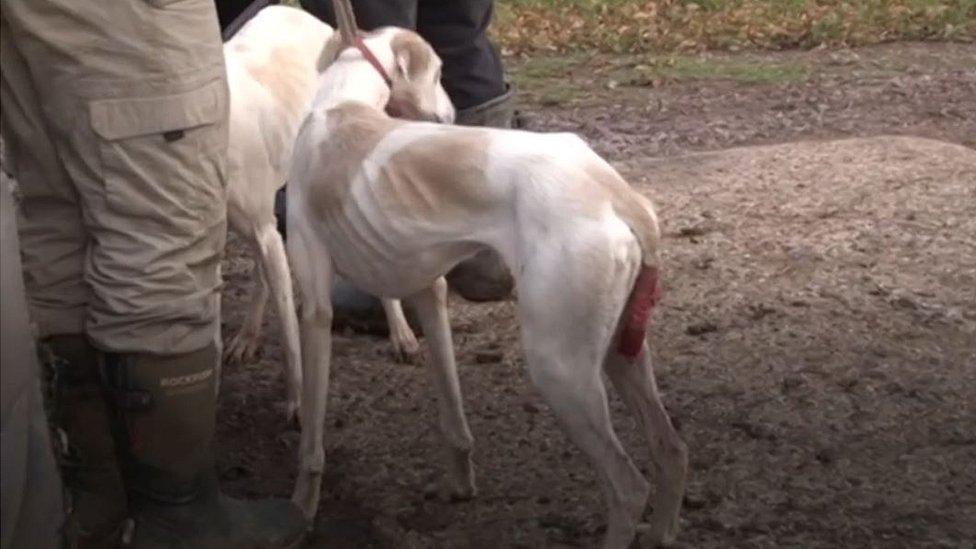Borderless policing hailed as hare coursing cases fall
- Published
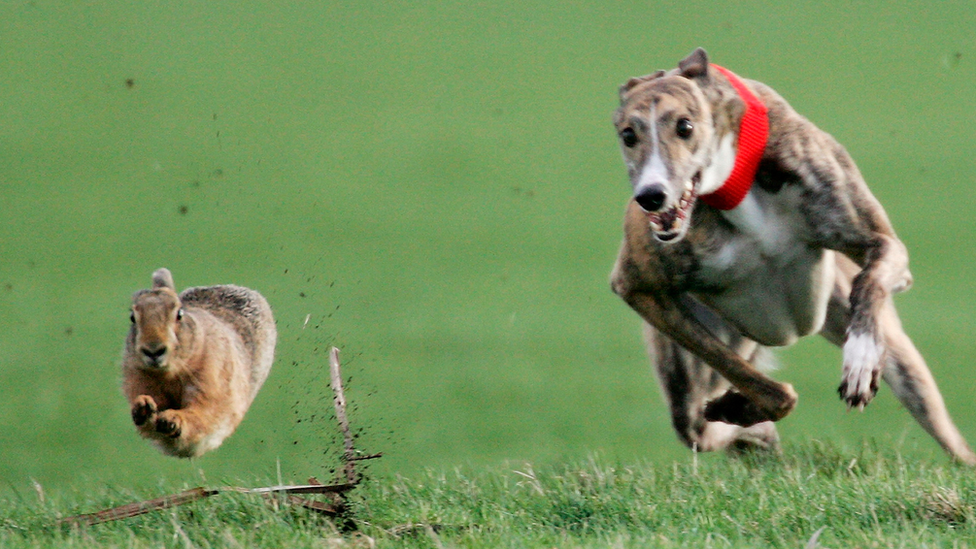
Hare coursing - where the animals are chased to the death by dogs - was made illegal in 2004
Police said a "borderless" response to illegal hare coursing had led to cases dropping by a third in just a year.
The collaboration, introduced in September 2021, joined up six police forces in the East of England as well as Kent.
It allowed teams to share information on criminal activity and act as one force in issuing warnings and notices.
Sgt Brian Calver, of Suffolk Police, said "rural communities were blighted by these people".
The borders between Bedfordshire, Cambridgeshire, Hertfordshire, Norfolk, Suffolk, Essex and Kent police forces were removed to make it easier to prosecute offenders.
The police operation encouraged landowners and farmers to share information on social media and introduce physical measures to secure their fields and crops.
Tougher legislation, external for hare coursing - where dogs are let loose to catch and kill hares on ploughed farmland - came into force on 1 August, with offenders facing an unlimited fine and up to six months in prison.
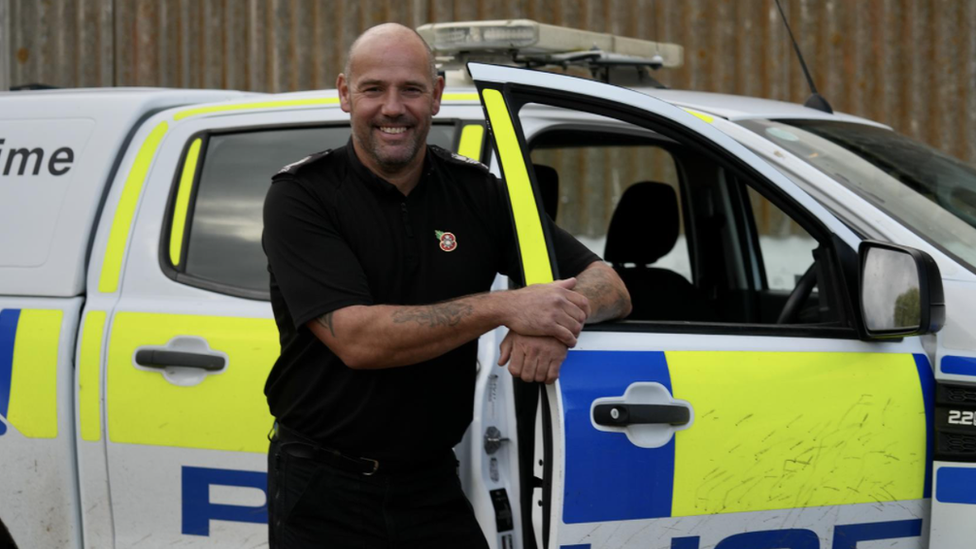
Sgt Brian Calver, of Suffolk Police Rural and Wildlife Team, said hare coursing remained a huge issue for farmers
"It's not just hunting mammals with dogs, it's a much bigger picture," Sgt Carver said.
"We're talking illegal gambling, threats, violence and intimidation, dangerous driving, damage to crops - these are unpleasant people with criminal backgrounds who live their lives in a criminal manner.
"You also get the human cost where people are living in fear."
Cases of illegal hare coursing in the region have fallen from 2,044 in 2020-21 to 1,415 in 2021-22 - a drop of 31%.
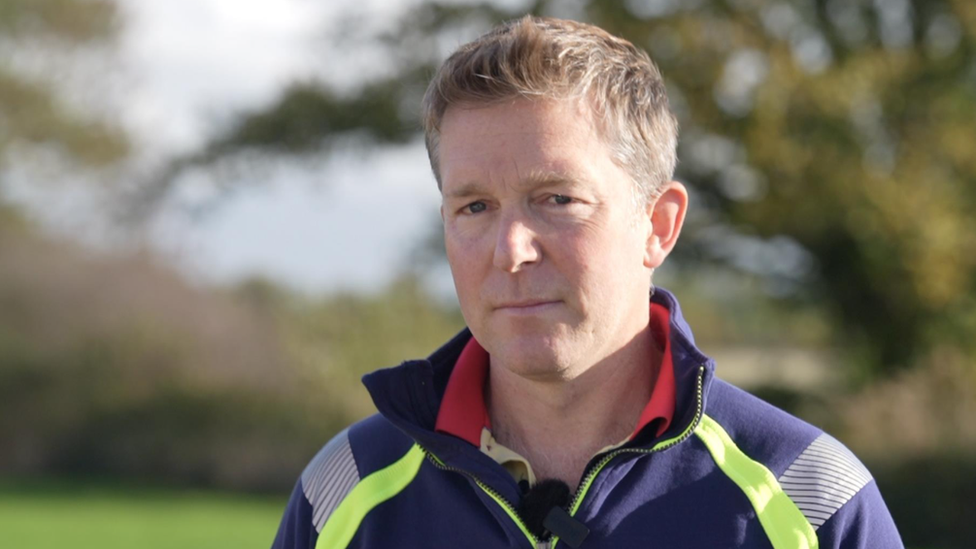
Suffolk farmer Patrick Barker said a "robust police response" had helped stop cases on his land
Patrick Barker, who farms a 550 hectare (1,359 acre) arable farm in Suffolk, said a "robust police response" had stopped cases altogether on his land over the last 12 months.
"We've put barriers across all our field gateways and tracks, put ditches in to stop vehicles being driven on to land, and environmental options like winter cover crops and longer grass to protect the brown hare," he said.
"For us, hare coursing causes a massive amount of damage to our crops, which are our livelihood, but at the same time hares are an iconic species of our countryside.
"As farmers we want to look after this environment and our farmland wildlife as much as we possibly can."

Find BBC News: East of England on Facebook, external, Instagram, external and Twitter, external. If you have a story suggestion email eastofenglandnews@bbc.co.uk
Related topics
- Published2 August 2022
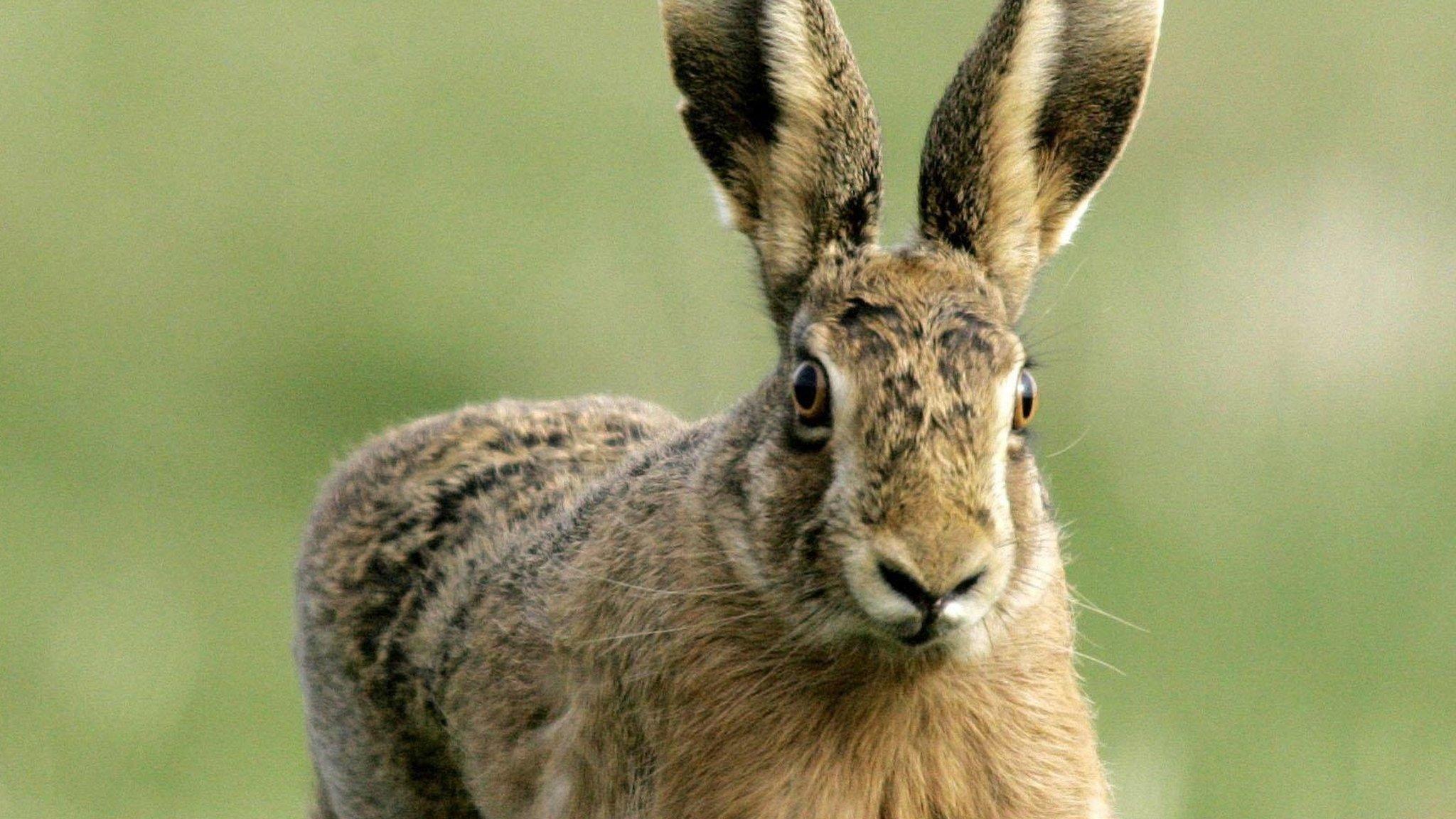
- Published20 August 2021
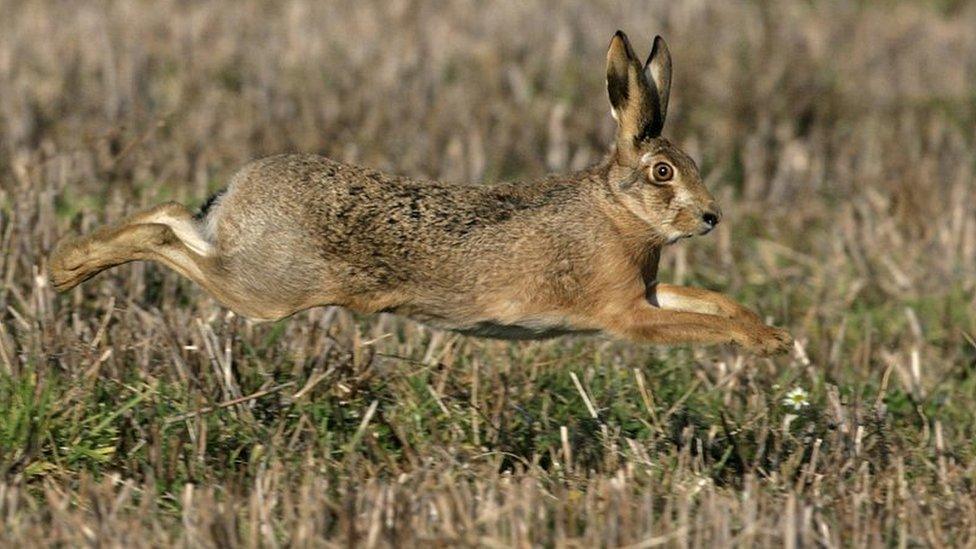
- Published3 February 2019
